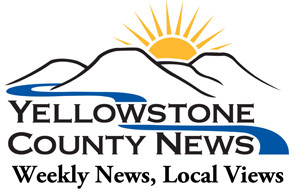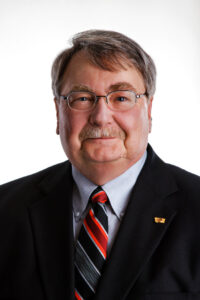Also calling Richmond to task for some of his positions was Barry Usher, who was a contender to fill the House seat to which Richmond was appointed following the resignation of Jonathan McNiven. Usher said that Richmond was appointed based upon his answers regarding his positions on several issues. Usher claimed that Richmond’s voting record was not in keeping with those answers.
About expanding the state’s Medicaid program to reach an additional 70,000 recipients, Richmond said, “I was in a box on this. I pledged not to advance Obamacare,” but this bill helped people who could not afford insurance, and it still required that they pay a premium. The legislation created the HELP program, which, he said, “isn’t Obamacare. It is a Montana solution. We needed to get if off the table… it was a bi-partisan bill.” He went on to say that “you can’t say you support a bill until you see it.”
Richmond said, “I hope we send people [to the state Legislature] who think while they are there rather than follow some kind of score sheet.”
“It’s a better solution than Obamacare,” said Richmond, “because it gets the poor out of emergency rooms, which is the most expensive way to provide care.” The clincher for him, Richmond said, was a provision in the legislation that allows the program to “sunset” (terminate) in the future if it is not working.
The legislation requires that recipients pay a portion of the premium depending on their income. In order to help those who have no income to pay for the mandated insurance, the legislature passed the Health and Economic Livelihood Partnership (HELP) Act to provide training to help them get jobs.
Former legislator Roy Brown scoffed about the sunset provision, saying that everyone knows that once created no government program ever goes away. He was quite critical of Richmond, saying that when he sent Richmond an email asking him what compelling reason was prompting his support of Medicaid expansion, he received no response.
It was pointed out that the Republican platform called for no Medicaid expansion.
One woman began to cry in making her remarks. She apologized, saying the whole issue makes her so upset. She said that as a single person she cannot afford health care. It is necessary to get the cost of health care down, she said.
“If we had more competition, that’s how you drive prices down,” said Usher.
Richmond said in general he thought the legislative session went well.
“We didn’t raise oil and gas taxes,” he said. “We didn’t put everyone out of business or add environmental legislation.”
He said that understanding that a Democratic governor could veto any efforts on the part of Republicans “to pass far-reaching bills that made strong statements,” they focused instead “to make incremental changes and get some things passed.”
But still, he said, Gov. Steve Bullock vetoed 10 percent of the bills passed by the Legislature – 58 bills. Richmond added, “Our governor has no taste for lower taxes,” referring toBullock’s veto of several Republican advanced tax reductions.
He defended his support of Republicans, saying that he supported 97 percent of Republican bills. He added “we can have a very small purer party or a larger party with broader ideas. . . A bigger party is a better party. We have to send people who can think for themselves and don’t have an agenda.”
Roy Brown was also upset with Richmond’s support of the “dark money” bill. He said that the new law will simply be used by the Democrats to attack Republicans at every turn.
Richmond said that he did not recall making any advance commitment regarding his position on dark money, except to say that he was in favor of as much transparency as possible. The legislation requires the disclosure of campaign donors who advocate for a candidate 60 days before an election. Richmond pointed out that he was a victim of a “dark money” attack by the Northern Plains Resource Council, in his failed campaign prior to being appointed to his current position.
The audience also expressed concern about Richmond’s support of the CSKT Water Compact, an agreement with Native American tribes in Montana regarding water rights, touted as a means of avoiding extensive future litigation.
“I am not sure why it was a polarizing issue – it was the 18th compact… going back to the Hellgate Treaty that predates the state. I think this was needed to be done to protect irrigators from court battles…. do you want to take chances in the Ninth Court of Appeals…it won’t work out well.”
Successes of the state Legislature included “reducing the proposed budget from 14 percent to 6 percent – closer to the population growth of Montana. It took a lot of work to get there.”
They also shortened the appraisal cycle – “makes it easier for the average person to understand the calculation of property taxes.”
The Tax Fairness Act was passed and signed – “It treats all taxpayers the same.”
The Legislature mitigated the shortfall to schools that resulted from the oil price decline, and they allowed tax credits for those who “invest in public and private education.” It was also a benefit, according to Richmond, that “we did not fund early education for 4-year olds, which would have cost $37 million.”
There were wins and losses for the local community. The failure – by two votes – of a bill that would have allowed Lockwood and two other schools districts in the state to consider adding high schools – was a big disappointment to Lockwood, which is in his district, said Richmond.
“The teachers’ union didn’t like it,” he said.
Gaining approval to build a new crime lab in Billings will be a benefit for eastern Montana, even though it is starting out small, said Richmond. They also established a permanent sexual assault unit, as well as prohibited the sale of electronic cigarettes to minors.
Vamping up the scholarship program for STEM (Science, Technology, Engineering and Math) education “is better than environmental studies,” said Richmond. “The jobs pay well” and the disciplines focuses more on using our natural resources, as opposed “to degree programs trying to stop development.”
Richmond was pleased with his bills that passed the Legislature, including one that revises oil and gas laws related to the oil and gas damage mitigation account. It creates a permanent fund to plug and restore orphan and abandoned wells, and to reclaim wellsite and tank battery locations.
Another bill generally revises water discharge laws regarding nutrients and provides for a 20-year compliance window to allow technology to catch up.
Richmond also introduced successful legislation that will prohibit the state, when confronted with legislative mandates to eliminate a program or agency, from simply shifting employees, equipment and resources to another agency and continue with the program without legislative approval.
Another one of his bills gives credit to oil field operators and the state for carbon sequestration that occurs during enhanced recovery.
Richmond said he had not yet decided whether he will run for election.



